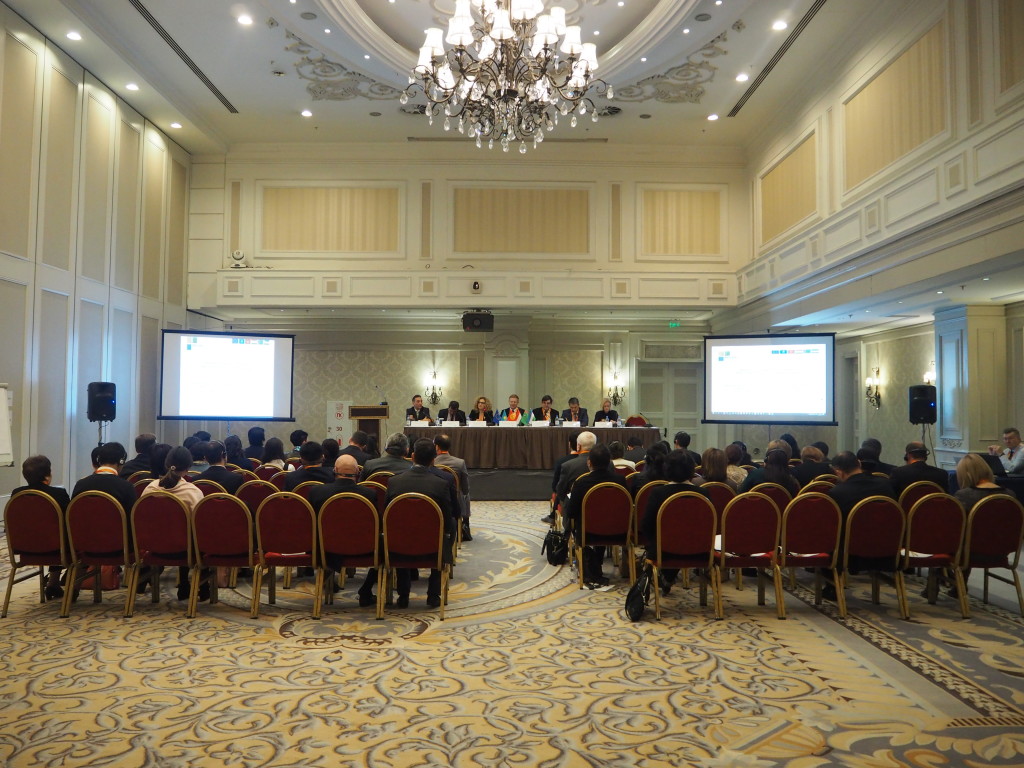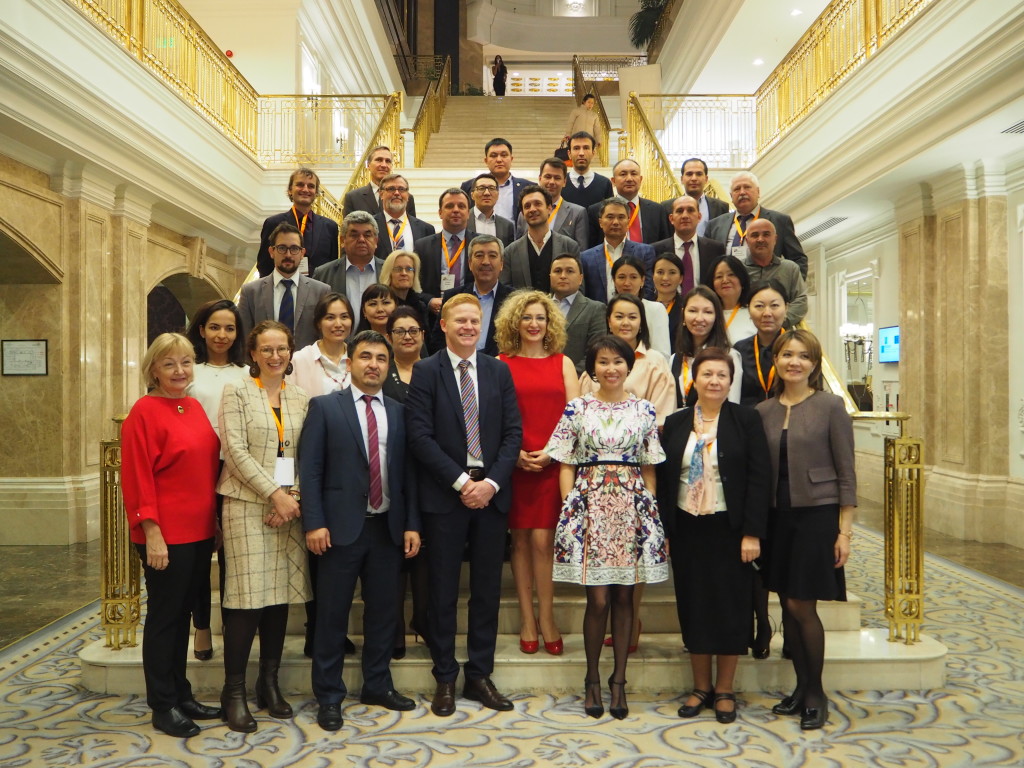ASTANA – Representatives of the European Union, international financial institutions, and international and regional organisations gathered in Almaty Nov. 23 and 24 for a workshop on access to international investments in water, energy efficiency and waste management infrastructure. The experts concluded that the countries of Central Asia should take advantage of international momentum for implementing climate-related and environmental projects.
“The Paris Agreement calls for greater efforts to tackle climate change, and the regional pipeline for [the Green Climate Fund] GCF is currently being defined. Being in the middle of diverse cultural, economic and environmental regions, the Central Asian countries can enhance their role as a bridge between Asia and Europe by taking the lead in implementing environmentally sound infrastructure projects,” said Alessandra Fidanza on behalf of the Italian Ministry of Environment.
She also stressed the importance of the WGECC in facilitating the connection between European and Central Asian countries.
The event promotes a green economy and finding sustainable solutions to water, energy efficiency and waste management issues, which are considered to be very important in all Central Asian states.
“With this event we aimed to build a bridge between policymakers and regulators in the field of environment, water and climate change, and potential investors in infrastructure projects. This workshop gathered together representatives of the governments, [international financial institutions], the Green Climate Fund and the private sector. We are confident that the results of our workshop will be tangible and have a long-term positive impact on the environment and standards of living in Central Asia,” said head of the cooperation section of the EU delegation to Kazakhstan Johannes Stenbaek Madsen.
The workshop provided a platform for participants to discuss practical ways to improve the process for preparing bankable projects. The experts highlighted key directions for action to boost investments through such sources as the GCF and the EU Investment Facility for Central Asia (IFCA). The financial capacity of the private sector was also reviewed.
The EU-funded project WECOOP2 presented its concept of a web-based Knowledge Centre and a draft investor guide aimed at helping state authorities better understand the international financial instrument requirements. The Knowledge Centre will provide information and advice on such institutions’ project cycles and eligibility and selection criteria, as well as on the project pipelines, explaining how to prepare bankable project proposals. The investor guide and the work to establish the Knowledge Centre will be completed by February 2018.
The EU and international financial institutions support the development of green technologies in Central Asia.


